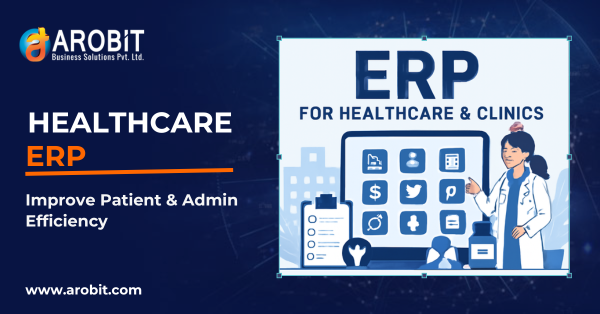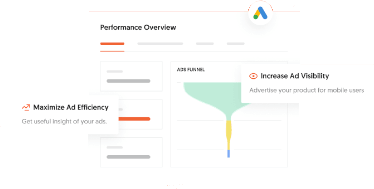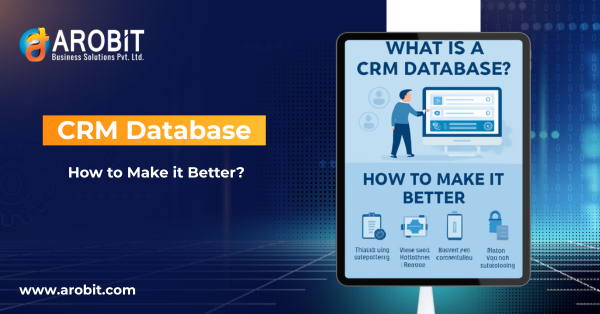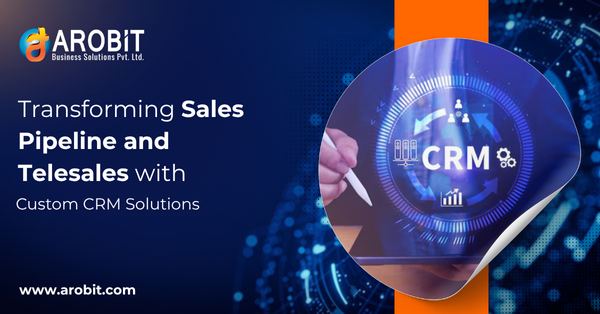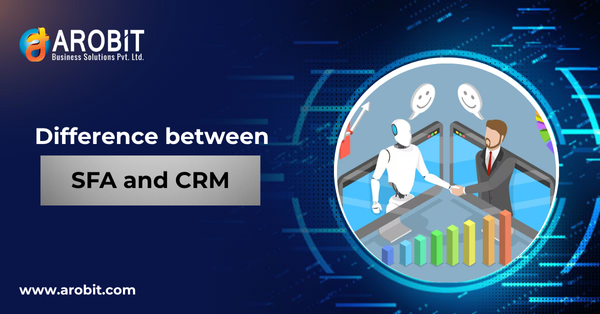As per the report shared by Number Analytics, ERP solutions can reduce administrative expenses by 30% and boost patient satisfaction at the same time!
ERP is a key element in the healthcare industry that is changing the way to manage their resources and provide services. As per the report shared by Grand View Research, the global ERP software industry is growing quickly and has crossed $64.83 billion in 2024 with an excellent 11.7% CAGR through 2030.
These systems make it easier to handle complicated healthcare tasks including finance, HR, inventories, and supply chains. But, yet there are many still working on their operations manually and reducing their patient retention. This is why it is high time to adopt ERP for the healthcare industry to completely reduce the operational issues.
Here we are going to help you with complete understanding of how ERP can change the healthcare industry by focusing on its many purposes and advantages. Let’s begin.
ERP in Healthcare: What Makes It So Valued?
ERP for healthcare industry is designed to handle the complexity of healthcare operations. In fact, enterprise resource planning systems are a big change in the way that healthcare businesses run their most important tasks. It works together to bring and automate most of the tasks into one digital platform including finance, HR, supply chain and others. A well-built healthcare ERP system has the following fundamental components:
- Patient Management
- Billing and Insurance
- Human Resources (HR)
- Inventory and Pharmacy Management
- Compliance and Regulatory
- EMR/EHR Integration
- Lab and Diagnostics
- MIS and Reporting
ERP for clinics and hospitals removes data silos, lowers manual effort, and helps to enhance patient care by combining these several activities.
Key Benefits of ERP for Healthcare Providers
Some of the primary benefits that comes along with the use of ERP for healthcare providers are:
Improved Patient Experience
ERP plays a key role in enhancing the overall patient experience right from the start. They have less wait time and more convenience with digital appointment scheduling and automated check-in procedures. Centralized patient records guarantee that doctors have immediate access to complete medical histories, hence facilitating quicker and more precise diagnosis. Automated reminders for preventive screenings, medication refills, and appointments assist to enhance health results.
Enhanced Operational Efficiency
The automation of daily administrative tasks is one of the main benefits of a hospital ERP system. Billing, insurance claims, and inventory control are simplified, hence lowering mistakes and enabling personnel to concentrate on patient care. Less paperwork means managers can access operational data in real time, which helps them to quickly make educated decisions. ERP for clinics can notify personnel about low pharmacy stock levels, create buy orders, and monitor orders. This guarantees constant availability of necessary supplies for the respective business.
Data-Driven Insights
A healthcare ERP system aggregates data from all throughout the company to offer robust analytical dashboards. Key performance measures like bed occupancy rates, average length of stay, doctor performance, and cost-per-patient can be tracked by administrators. These revelations help to highlight patient care trends, allow proactive resource planning, and guide evidence-based decision-making. ERP in medical industry helps healthcare organizations to move from reactive problem-solving to strategic, data-driven management.
Regulatory Compliance Made Easy
Healthcare rules are often changing and complicated to follow. A hospital management ERP system automates the tracking of privacy policies, patient data protection, and audit records. Monitoring staff certifications and license expiration dates helps to lower the non-compliance risk. With access restrictions and encryption to safeguard critical information, the system guarantees that all patient data is preserved securely. This not only protects patient confidence but also reduces the possibility of expensive fines.
ERP Modules Essential for Clinics and Hospitals
Built on a modular design, a thorough ERP for the healthcare sector lets companies choose and tailor the parts that most suit their requirements. Clinics and hospitals need the following fundamental modules:
Patient Management System
This module centralizes patient data, tracks appointments, admissions, and discharges, and manages patient communication. It enables seamless coordination between departments and ensures that patient information is always up to date.
Doctor Scheduling & Roster System
Efficiently manages doctor availability, shift rotations, and on-call schedules. It helps optimize resource allocation and reduces scheduling conflicts, ensuring that patients receive timely care.
Billing & Insurance Module
Automates billing processes, insurance claims, and payment reconciliation. It integrates with external payers and supports multiple payment methods, reducing errors and accelerating revenue cycles.
Pharmacy & Inventory Management
Monitors stock levels of medications, medical supplies, and equipment. The system generates alerts for low inventory, automates purchase orders, and tracks usage, minimizing waste and preventing stockouts.
Human Resource Management
Handles staff recruitment, onboarding, payroll, performance evaluations, and compliance tracking. It simplifies HR processes and ensures that staffing levels align with patient demand.
EMR/EHR Integration Module
Integrates electronic medical records and health records with the ERP platform, enabling clinicians to access patient histories, lab results, and treatment plans from a single interface.
Lab & Diagnostic Module
Streamlines laboratory workflows, test ordering, sample tracking, and result reporting. It ensures that diagnostic data is accurately captured and readily available to clinicians.
MIS & Reporting Module
Provides management with real-time dashboards, custom reports, and analytics tools. It supports strategic planning, resource allocation, and performance monitoring.
How ERP Solves Real-World Problems in Clinics?
Many healthcare professionals battle broken procedures before clinics use ERP. Paper records frequently lead to loss of appointment, untracked inventory, and manual billing that causes regular mistakes and delays.
Clinics will end-to-end visibility into all operations after implementing a healthcare ERP system. With automatic reminders, appointment scheduling turns digital and error-free. With notifications for low stock and smooth supplier connection, inventory control is proactive. Billing is simplified to lower mistakes and it also speeds up the payments. Digital prescriptions and EMR integration provide data-driven, coordinated patient care.
The following table will assist you get complete clarity on the transformation:
Arobit’s Approach to Healthcare ERP Development
From small clinics to big hospitals, Arobit excels in providing custom ERP development fit for the specific demands of healthcare providers. Designed to be flexible and expandable, their hospital ERP system lets companies choose the features that best fit their growth strategies and workflows.
Arobit's ERP for the healthcare sector creates a single digital ecosystem by integrating smoothly with CRM tools, payment gateways, and diagnostic labs. The technology allows mobile access so doctors and administrators can control schedules, examine patient records, and approve requests on the go. This mobile-friendly strategy improves flexibility and reactivity.
Arobit's healthcare ERP system also stresses data security and regulatory compliance. Every stage of patient data protection is guaranteed by advanced encryption, role-based access controls, and audit trails. The company's ERP development services comprise continuous support, customization, and integration with telemedicine and AI-driven analytics among other developing technologies.
Key Points: Why ERP is Essential for Modern Healthcare
In the medical sector, ERP is the backbone of a smart, efficient, and patient-centric healthcare system, it is no longer optional. Hospitals and clinics using ERP software gain from lower administrative expenses, better patient satisfaction, and greater operational agility. Access to real-time data, automated repetitive chores, and guaranteed compliance helps healthcare professionals to be resilient and grow in the long run.
Custom ERP development helps companies to customize their hospital management ERP to particular requirements, hence addressing certain processes and integration demands. Healthcare providers may future-proof their operations and remain ahead of market trends with knowledgeable ERP development services.
Final Thoughts
These aspects show how ERP for the healthcare industry is completely changing the world of hospitals and clinics in terms of operations. Not only this, it is allowing hospitals to completely shift from manual approach to digitized way. So, it is certainly the way to go moving forward and will drive data security and strategic growth.
If you are thinking about how you can make the most out of it, then connect with the experts at Arobit to help you with ERP software development. We will understand your custom needs and assist you with services that can help you take complete control of the operations and enhance patient satisfaction.
Frequently Asked Questions (FAQs)
1. What is ERP for the healthcare industry and how does it differ from generic ERP software?
ERP for the healthcare industry is specialized software designed to manage clinical, administrative, and financial processes in healthcare settings. Unlike generic ERP, it integrates modules such as patient management, EMR/EHR, and compliance tailored to medical workflows.
2. How does a hospital ERP system improve patient experience?
By means of appointment scheduling, centralization of patient records, and automated follow-ups, a hospital ERP system produces reduced wait times, quicker diagnosis, and improved continuity of care.
3. What are the key modules of a healthcare ERP system?
Essential modules are patient management, doctor scheduling, billing and insurance, pharmacy and inventory control, HR, EMR/EHR integration, lab and diagnostics, and MIS reporting.
4. Can ERP for clinics help with regulatory compliance?
Indeed, ERP for clinics guarantees data security, keeps audit records, and automates compliance tracking, hence lowering the possibility of regulatory infractions and fines.
5. What are the advantages of custom ERP development for healthcare providers?
Custom ERP development enables healthcare providers to personalize the system to suit unique processes, interact with current systems, and scale as their needs evolve.
6. How do ERP development services support healthcare organizations?
ERP development services guarantee that the ERP solution satisfies present and future needs by offering knowledge in system design, integration, modification, and continuous support.
7. Is mobile access important in a hospital management ERP?
Mobile access increases flexibility and responsiveness by letting clinicians and managers control schedules, see patient records, and authorize activities remotely.

